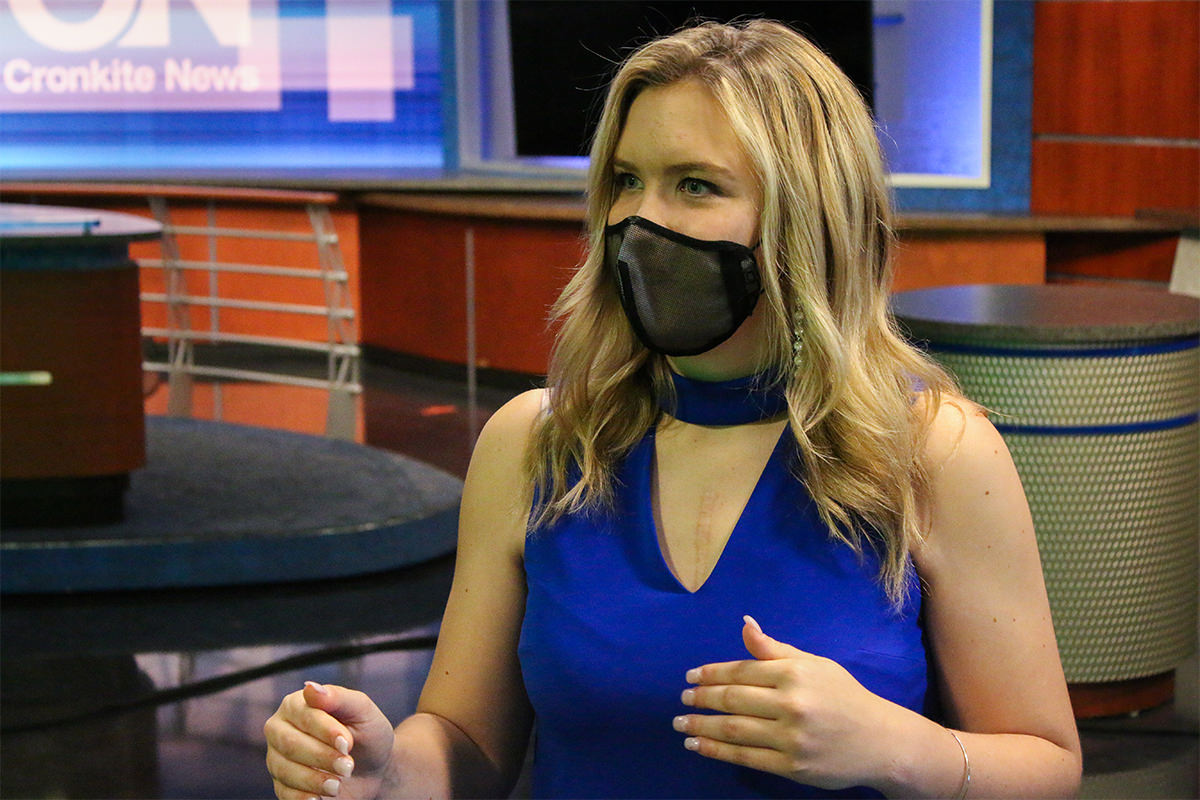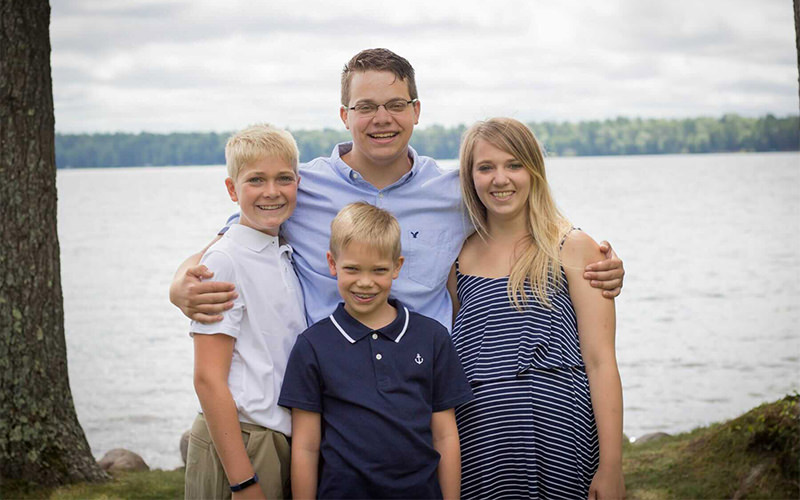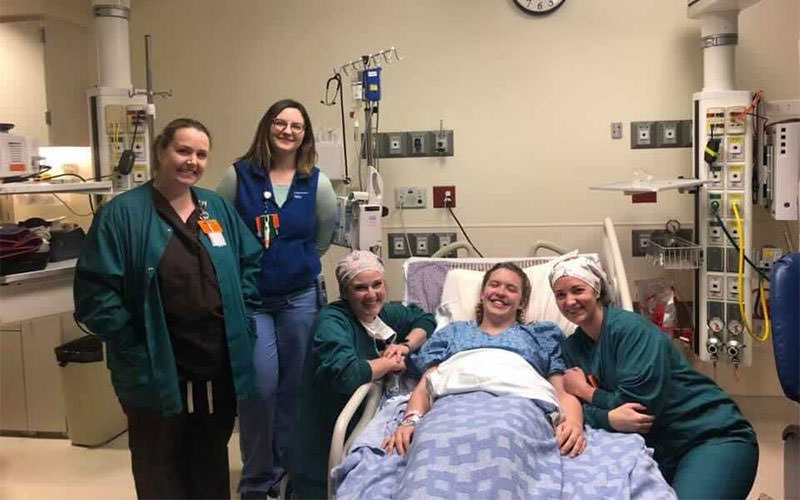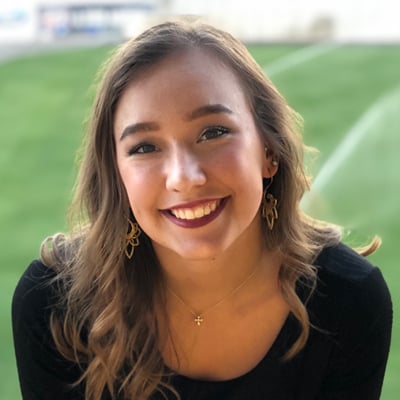That’s the day Olivia, 16, received a new heart. It belonged to Connor, who at 22 years old had suffered severe injuries from a car accident.
As fate would have it – and fate reared its head in the strangest of ways with these two – Olivia was at Children’s Mercy Hospital Kansas in Kansas City for a routine check-up when she learned that after a long wait, a heart was available to her.
Connor’s.
“It was interesting because Olivia was in the hospital room when the doctors came in, and Jodi had just gone down to the hospital cafeteria,” Rod said about his wife. “I had gone home to shower and then went to my office to pick something up. Olivia was alone in the room when the doctors actually came in and told her that they had a donor. … The doctor told us later that he actually had four heart offers within 24 hours. We had waited for two years, then all of a sudden we had four heart offers.”
Two years, then suddenly four donors. Not only that, Olivia later learned that many of Connor’s family members were fans of Kansas State, a rival of her beloved Kansas Jayhawks. They loved sports almost as much as she did.
Fate.
“She’s not our child, yet I view her a little bit as being part of our family,” Travis said. “She’s got part of us with her. And she always will.”
And she will always have the scar. It snakes up her chest and stops just below her neck. She wears it as a kind of badge of honor, despite once being told she shouldn’t pursue broadcast journalism because of it. Now 18 and a student at Arizona State’s Walter Cronkite School of Journalism and Mass Communication, Olivia is more than ever determined to make it in an industry that has had little room for imperfections when it comes to women.
“Anyone who is an authority figure who tries to limit a person because of his or her scars needs a crash course in humanity,” said Kim Jones, an NFL Network reporter. “All of us have scars. Some of ours are just more visible.”
Jones would know. In 2018 while covering a Washington Football Team practice, she suffered an aortic dissection. Doctors were able to save her life, but in the process created a noticeable scar.
“I remember when I was in the hospital and met one of my surgeons (Dr. Alan Speir) for the first time. He said, ‘I know what you do for a living. I’m sorry about the scars,’” Jones said. “At that point, I hadn’t seen my scars yet. But I told him: ‘Don’t apologize. My scars are who I am now.’
“Over the last two-plus years, strangers have thanked me for not being afraid to show my scars. So many other people have them, too.”
A scary moment
Olivia’s heart had stopped beating that day on the volleyball court at Okun Fieldhouse in Shawnee. Just 12, she had suffered a significant cardiac arrest.
Her parents rushed to her side and began performing CPR. For several long minutes, they pressed their hands against her chest with no success. As the situation grew bleaker with each tick of the clock, the Eisenhauers’ miracle appeared in the form of a medical device.
“Somebody found and yelled for a defibrillator,” Jodi Eisenhauer said. “They came running over and said, ‘We’ve got to use this defibrillator now.’ She was gray. She was gray. We later found out that we had seconds.”
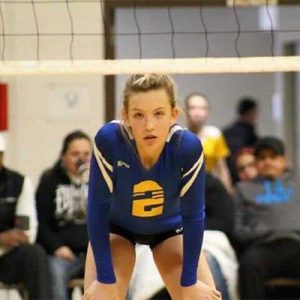
Eisenhauer loved playing competitive sports when she was young. She had just finished playing volleyball when she suffered cardiac arrest. (Photo courtesy Olivia Eisenhauer)
The AED device sent electricity pulsing through her heart. She was alive.
An ambulance arrived and Olivia was rushed to Overland Park Regional Medical Center just outside of Kansas City. Jodi can vividly recall the ride, especially the clatter and beeping of medical devices from the back of the ambulance.
“I’ve never heard sounds like that in the back of that truck,” she said. “I think that was the hardest of all of it.”
Olivia was placed in a medically induced coma for two and a half days as doctors tried to stabilize her. When she woke up with a breathing tube down her throat, she had a moment of sheer panic.
“I remember just waking up … they were starting to take me out of a coma and just being like ‘What is going on?’,” Olivia said. “I asked for a whiteboard and a pen to start writing. … That was just like sheer panic. I had nurses holding me down, but then my mom saying, ‘You can’t speak right now’.”
Over the next 11 days in the hospital, Olivia’s condition improved, but doctors still didn’t know what was wrong with her. They wouldn’t figure it out for more than two years, even after Olivia had a second cardiac episode at age 14.
Finally, Olivia’s parents took her to the Mayo Clinic in Rochester, Minnesota, for a five-hour cardiac catheterization to view her heart and its activity level. Olivia was diagnosed with restrictive cardiomyopathy, a condition that affects the oxygen levels and viability of her heart.
“The top half of my heart was perfectly fine, but the bottom half of the muscle was incredibly tense, and I needed double the oxygen for it,” Olivia explained. “I could barely walk up steps without borderline passing out because I would just get winded.”
The family was told that the only choice was a heart transplant and they knew it could be a long time before one could be found. While they waited, Olivia adjusted to a dramatically different kind of life.
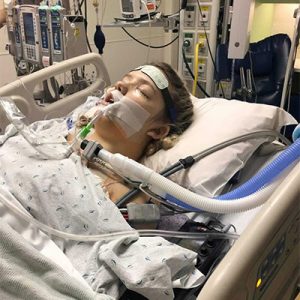
After Eisenhauer collapsed following a volleyball match, doctors couldn’t figure out what was wrong with her at first. She was in an induced coma for several days. (Photo courtesy Olivia Eisenhauer)
“I was going from playing volleyball at least two hours a day, five out of seven days a week, to being told, ‘That really can kill you,’” she said. “‘Your life could end if you step on the volleyball court again.’”
Knowing that she was unlikely to ever pursue a career in sports, Olivia began thinking about sports journalism instead.
“I really started to watch sports and the X’s and O’s,” Olivia said. “I couldn’t play, and that was incredibly difficult. It was just a total lifestyle change. In hindsight, I’m thankful for that side of it because like the saying, one door closes, another opens.”
It took almost two years to find the perfect heart and 10 hours to place it in her chest. When Olivia emerged, she had a perfect, beating heart and the knowledge that someone had to lose a life in order for her to live one.
